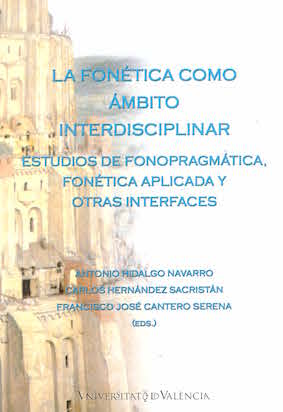Más sobre la llamada entonación imperativa. Datos del español de México
DOI:
https://doi.org/10.7203/qfilologia.19.5192 Resum
Resum
El propòsit del treball és analitzar l'entonació “imperativa” en l'espanyol de Mèxic, concebent-la com la pròpia d'actes de parla directius complexos, dotats de subcomponents: advocacions, preparacions, subactes centrals (ordres o peticions), reparacions i justificacions. En aquest sentit, sembla millor parlar d'entonació volitiva o directiva. La hipòtesi és que existeix una relativa harmonia prosòdica entre els diferents components de l'acte de parla, àdhuc amb trets específics en cadascun. Es repassen els antecedents, es presenta la metodologia i s'analitzen dades de set ciutats mexicanes. La discussió recull les observacions en termes optimals, reconeixent-se la variabilitat entre components i entre exemples, així com l'existència de bastant ordre en el conjunt.
Paraules clau: entonació imperativa; prosòdia volitiva; ordres i peticions; optimitat i prosòdia; espanyol de Mèxic.
 Descàrregues
Descàrregues
Descàrregues
Publicades
Com citar
-
Resum409
-
PDF (Español)296
Número
Secció
Llicència
 Este obra está bajo una licencia de Creative Commons Reconocimiento-NoComercial-SinObraDerivada 4.0 Internacional.
Este obra está bajo una licencia de Creative Commons Reconocimiento-NoComercial-SinObraDerivada 4.0 Internacional.
Tots els documents inclosos a OJS són d'accés lliure i propietat dels seus autors i/o institucions editores, i per tant, qualsevol acte de reproducció, comercialització, comunicació pública o transformació total o parcial necessita el consentiment exprés i escrit d'aquests.
Authors who publish with this journal agree to the following terms:
- Authors retain copyright and grant the journal right of first publication with the work simultaneously licensed under a Creative Commons Attribution License that allows others to share the work with an acknowledgement of the work's authorship and initial publication in this journal.
- Authors are able to enter into separate, additional contractual arrangements for the non-exclusive distribution of the journal's published version of the work (e.g., post it to an institutional repository or publish it in a book), with an acknowledgement of its initial publication in this journal.
- Authors are permitted and encouraged to post their work online (e.g., in institutional repositories or on their website) prior to and during the submission process, as it can lead to productive exchanges, as well as earlier and greater citation of published work (See The Effect of Open Access).




